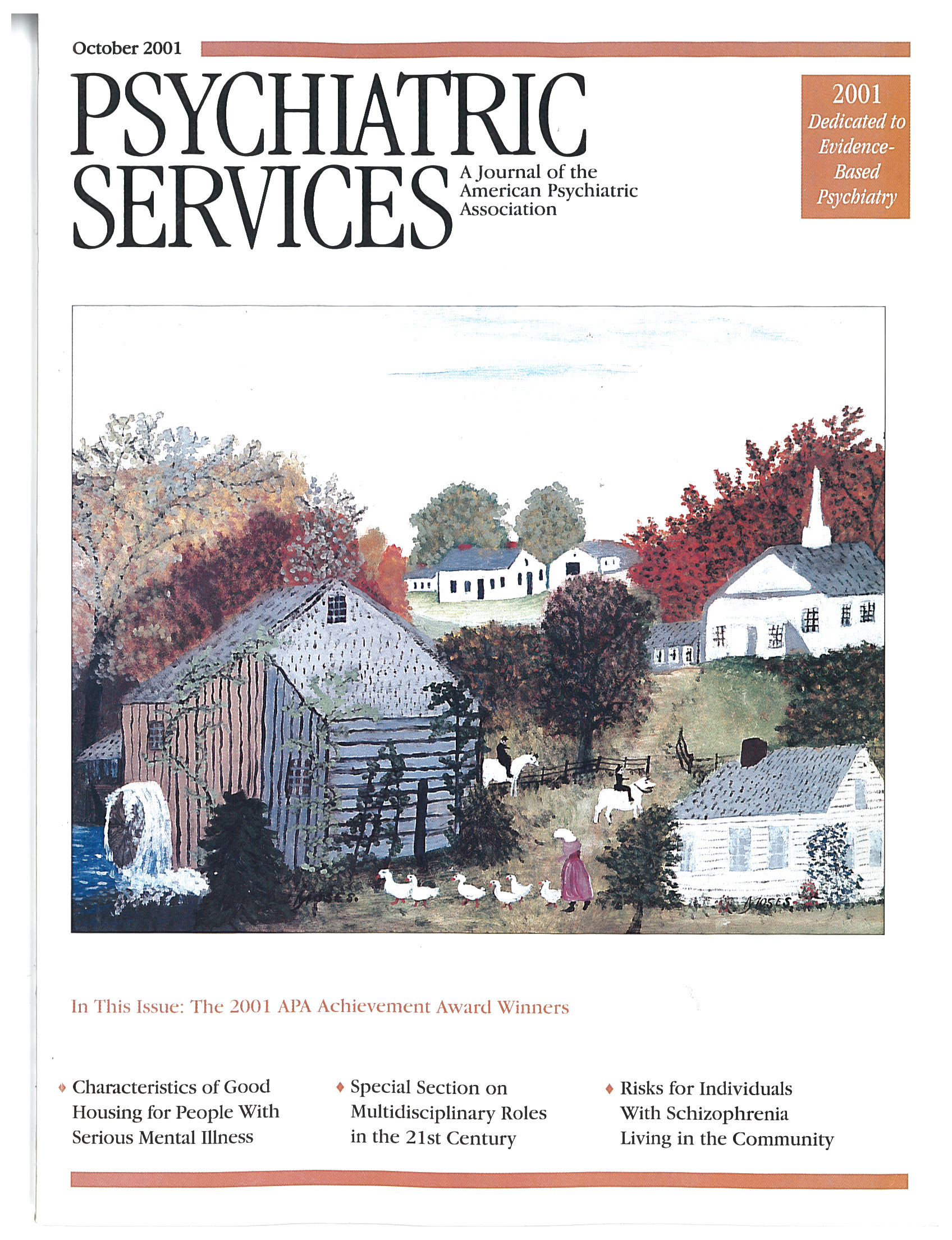In Reply: Dr. Gomory's critique of the evidence for assertive community treatment described in the article by my coauthors and me correctly identifies limitations in findings on assertive community treatment. Certainly, consumers, clinicians, family members, and investigators have hoped that this approach to treatment could have a greater impact on symptoms and psychosocial functioning. The limitations have been recognized in previous reviews (
1,
2). What seems puzzling in Dr. Gomory's response is his failure to recognize the straightforward reporting of study findings and to understand the steps taken over time to improve the model.
Assertive community treatment is one of the most intensively studied interventions for severe mental illness. Findings from 25 randomized clinical trials published over the past two decades have been extensively reported. The most recent review of assertive community treatment provided a new opportunity to summarize its outcomes, which were reported in terms of the percentage of trials with better outcomes for assertive community treatment, no difference, or worse outcomes (
3). Although it is true that reduced psychiatric hospital use is the most powerful and consistent outcome, found in 74 percent of the studies, housing stability was better in 67 percent of the studies and worse in 8 percent. Quality of life was better in 58 percent, and greater client satisfaction was reported in 88 percent of the studies in which it was assessed. Weaker findings, in the range of 20 to 50 percent of studies, demonstrated the superiority of assertive community treatment for symptoms, social adjustment, arrests and incarceration, substance use, vocational functioning, and medication compliance.
Because the results of the 25 trials have presented both strong and weak evidence for the effectiveness of assertive community treatment across a range of outcomes, steps have been taken over the past two decades to address the imperfect evidence base. Weak findings have been used to inform further development of the model in many areas. Such developments include increased consumer participation on assertive community treatment teams, integrated substance abuse treatment for persons with serious mental illness, more effective strategies for social and vocational rehabilitation, use of recent psychopharmacological breakthroughs to reduce symptoms and side effects, addition of a systematic approach to family psychoeducation, and development and use of fidelity measures to monitor quality and improve implementation of assertive community treatment. These clinical and rehabilitation advances have been incorporated to refine an already complex and comprehensive model. The development of such refinements represents a rich response to the less robust findings, and there is little doubt that assertive community treatment will continue to evolve with further field experience and research.
In fact, the findings reported in the 25 studies are probably conservative. The challenges to conducting research on comprehensive interventions for complicated and persisting clinical conditions in public-sector settings are many. Among the most notable threats to large-scale field-based studies are inadequate implementation of the treatment model and the study protocol; poor subject retention, especially in control conditions of usual care; policy changes that reduce resources for the experimental condition; improvements in community care that favorably influence outcomes for the control condition; limitations in outcome measures, such as sensitivity to change; and low base rates for some targeted outcomes. Such methodological problems have been acknowledged in published reports by investigators of assertive community treatment. Public-sector studies contrast sharply with the more typical university-based efficacy studies, which typically recruit small and homogeneous samples, are of shorter duration, measure fewer outcomes, and are supported by adequate resources. All of these features ensure greater control by investigators over most aspects of the study protocol. The trade-offs necessary to achieve external validity in field-based trials may dampen the findings, but they also increase confidence in the results that are obtained.
Despite limitations in the evidence, assertive community treatment remains the best empirically validated model for a selected group of adults with severe mental illness. Assertive community treatment is evolving, and it will continue to incorporate modifications and innovations. However, treatment cannot stand still. People need and deserve the best treatment we have. In this vein, the assertive community treatment toolkit, used in conjunction with other toolkits, will provide an educational strategy for achieving an ambitious set of evidence-based practices for improved outcomes.

